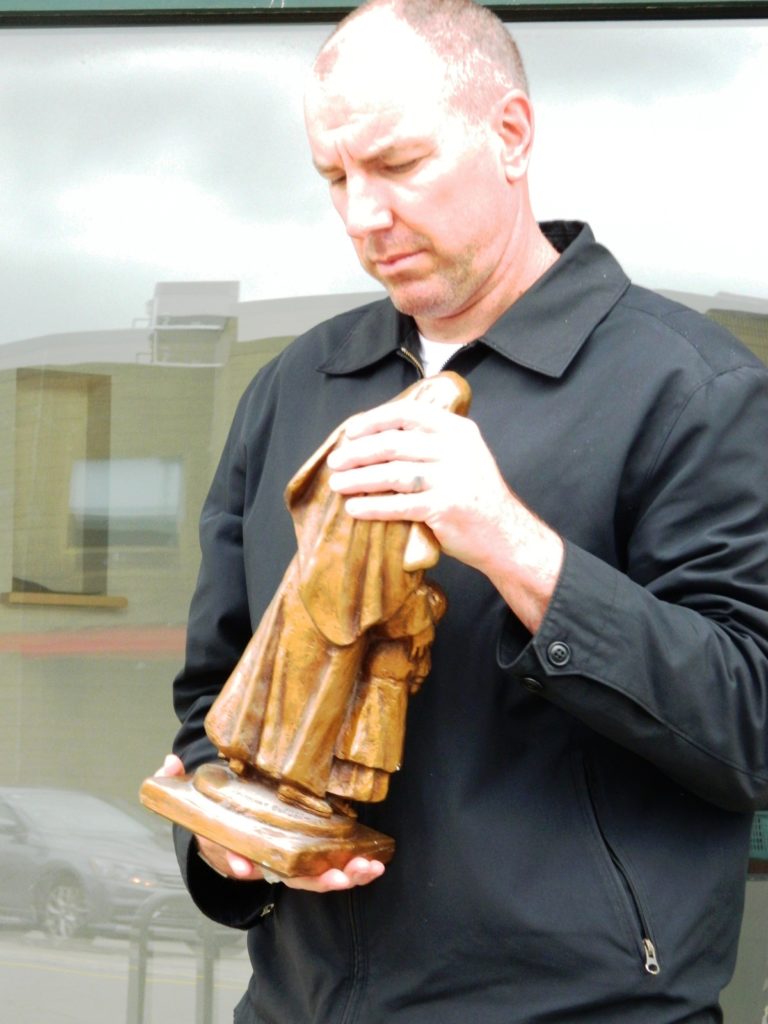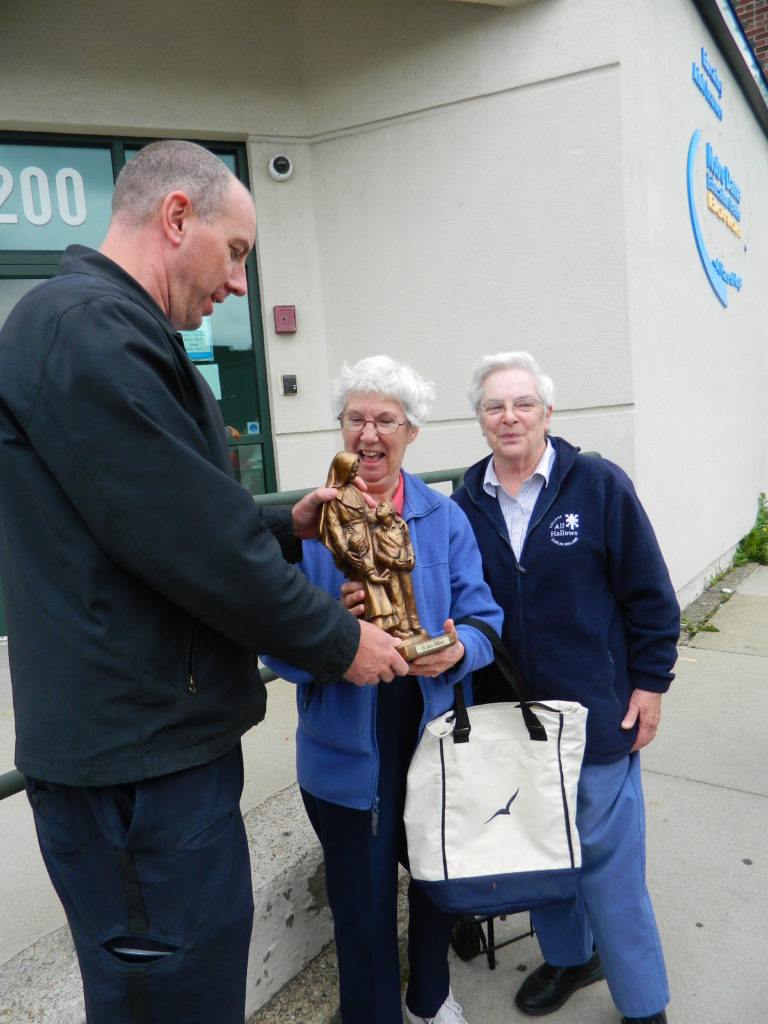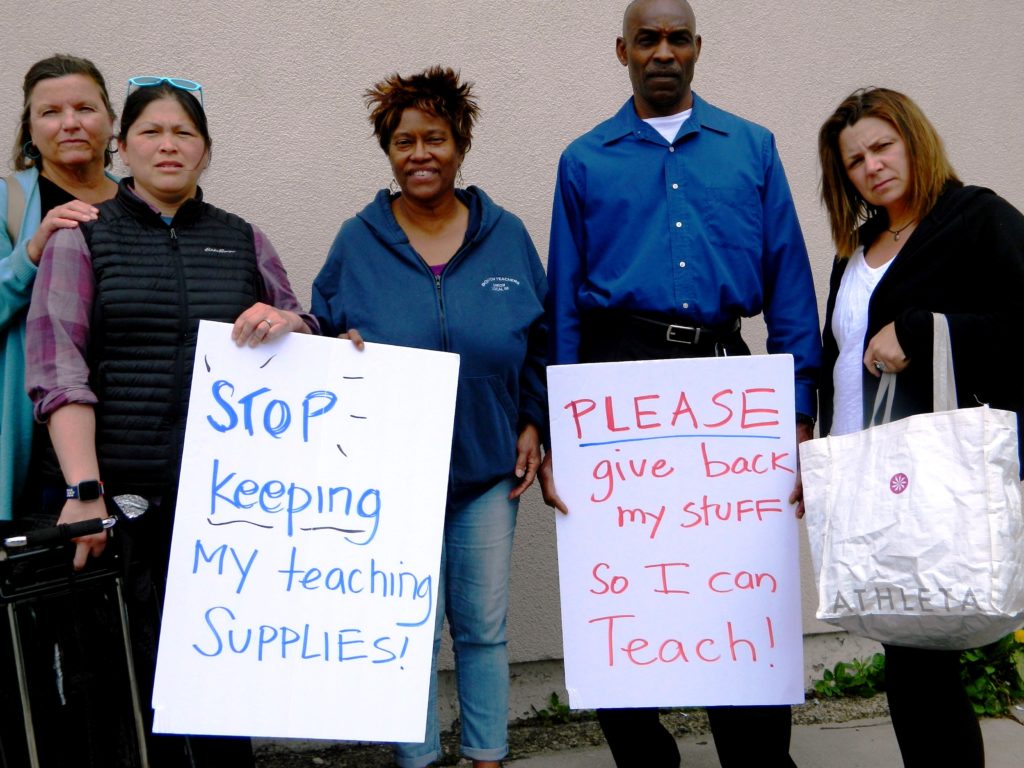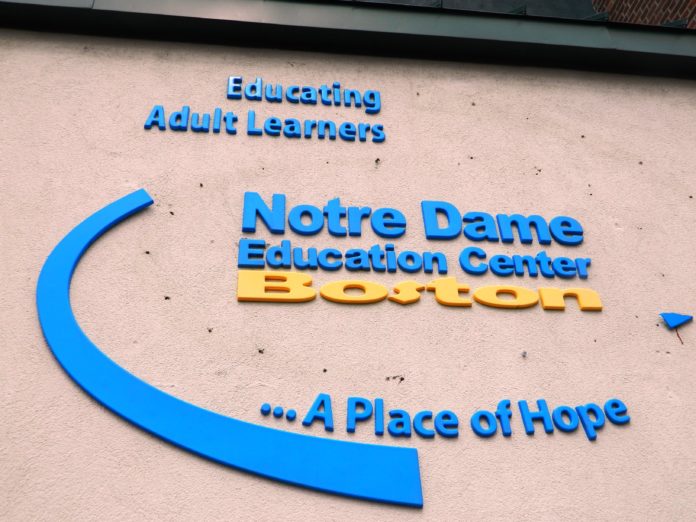It appears that the religious nuns of the Notre Dame Education Center have been ‘snookered’. Their doors have been shut and their future is in doubt, along with the fate of hundreds of family members who have relied on their services as they try to assimilate into the vibrant Boston neighborhoods.
“It’s all about the Benjamins”, one affected employee was overheard to have mumbled. Their patron saint Julie Billiart was nearly victimized, but thanks to BPD Officer Sullivan and Sargeant McNeil, her statue was salvaged at the last minute and returned to grateful nuns, Sisters Margaret Lalen and Cathleen O’Brien.


The Center became partners with a local developer, All Saints LLC, in the hope of continuing its mission. A year after buying the center’s quarter-acre Old Colony Avenue property for $4.5 million, the nonprofit’s good standing in the neighborhood helped it win city approval for a controversial six-story apartment building on the site, which will include 49 units The school would survive, by operating out of one floor.
As reported here last week, things have soured since Notre Dame started preparing to close its building for two years during construction, and to move some of its classes to temporary spaces. First, the Notre Dame board decided to suspend the school’s English-as-a-second language and adult basic education classes for roughly 400-plus students, citing insufficient funding. About 15 full- and part-time teachers would lose their jobs as a result, including two nuns from the Sisters of Notre Dame de Namur. Then the situation worsened in late May when those teachers were laid off with three weeks of classes remaining. Last week, students and teachers were surprised to find themselves locked out of the school. They ended up holding classes in space across the street, donated by the Ironworkers Local 7, whom the community can always count on in a crisis.

As reported in the Boston Globe, Kirsten Konefal is among those who are continuing to teach. “They didn’t have the money,” Konefal said of Notre Dame. “They didn’t have the alternative location that they promised they would . . . All I want to do is teach my class.” Mary Rose Durante, executive director at the Notre Dame center, said she has found temporary space to continue the center’s youth education and workforce readiness classes. She said she hopes to revive the suspended English and adult basic education classes in some form once the organization has enough funding. Everyone who lost their jobs was still paid through June 14, the date the classes were supposed to end, Durante said.
Notre Dame received $878,000 in state funds for in-person education in this fiscal year, according to the state agency. The center had been scheduled to receive another $840,000 in the fiscal year that starts in July. But that disbursement is now apparently in jeopardy because of the chaos at the school. Senator Nick Collins and Representative David Biele have been in communication with the Department Of Education and are monitoring its deliberations, as is Auditor Suzanne Bump and Attorney General Maura Healey.
Meanwhile, a spokeswoman said the state agency is preparing to go out to bid again to find a school that can provide similar services. One possibility for reviving the classes has been put forth by Bob Monahan, executive director at the nearby Julie’s Family Learning Program, who stated, “Julie’s is the solution to this problem that has been created.” Julie’s already shares in a portion of Notre Dame’s state funding and is in a position to provide a smooth transition. Julie’s and Notre Dame also share some history — both were founded by the Sisters of Notre Dame de Namur and are remaining vestiges of the order in South Boston after Cardinal Cushing High School on West Broadway closed in 1992.
“Clearly, something went very wrong from what the stated plan was,” said Theresa Bonanno, a South Boston resident who volunteers at the school. “Precipitously closing the program without notice to the teachers or students three weeks before the end of school, this is not the way it should have happened.”
Many in the South Boston neighborhood have come to be cynical, wondering if anyone tells the truth when lots of money is involved. Some argue that the Center is not a core service for South Boston residents and that may be true. Nonetheless, the public relations mess that has been the result of the lack of transparency and communication is yet another chapter in the steady disappearance of institutions that were the backbone of the South Boston community. Churches, schools, social services, children’s’ toy stores, affordable clothing shops and bicycle repair shops are giving way to gourmet this and that, high end boutiques and an endless number of eateries and cafes. In the opinion of most, the NDEC will not be housed in South Boston.










